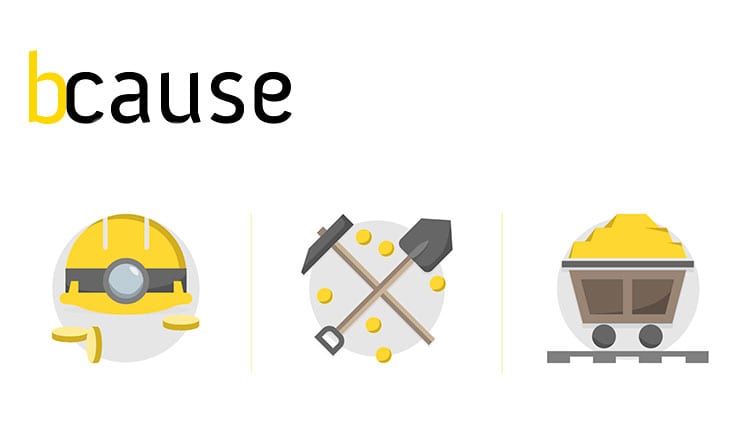BCause LLC, a cryptocurrency mining operation in Virginia Beach that converted to being a mining server farm supporting other mining operations, is seeking the protection of the bankruptcy court under Chapter 11. Its mining subsidiary, BCause Mining LLC, is also named in the court filings. According to legal filings of its two major creditors, BCause owes past due power bills of $1.7 million to Dominion Energy and another $1.9 million to WESCO, a multinational electronics distribution and services company.
The two companies have over $900,000 in cash in its bank accounts, but it sought protection when the utility company attempted to seize those funds through the courts. BCause gained notoriety last year when it received a $500,000 grant from Virginia Beach to expand into a server farm into the city and then “promised the city it would add 100 new jobs earning an average of $60,000 a year.” Per its bankruptcy filing, it has fallen short of this commitment, only employing 27 full-time and 4 temporary employees at the site.
BCause is not a small operation, but it now depends on other mining operations to outsource their power and hardware needs to the firm. It has invested $64.8 million in equipment and other fixed assets and leased an 84,000 square-foot facility to house its vast server farm. The firm is also slightly profitable. In 2018, it recorded revenues of $12.6 million on which it earned a net profit of $19,844. It makes “its money largely from leasing its stacks of computer equipment to other miners”. Cash flow appears to be the primary issue, since it also spent $15.2 million in the same timeframe, $2.6 million more than was booked as income for the period.
Creditors acknowledge that a “combination of things”, including a major drop in BTC valuations, caused the problems at BCause, but many of the creditors say they will be willing to work with the firm, although “Dominion plans to ask the court for a two-month $1.59 million deposit from the company.” The total of all liabilities currently stands at a little over $11 million. Roughly half of this amount is due Dominion and WESCO, along with the Professional Heating and Cooling of Norfolk ($957,856), US Customs ($737,041), and its lawyers ($470,000).
BCause now joins the list of crypto enterprises far and wide that have had to deal with the consequences of Crypto Winter. Articles in the financial press continue to document the failures of various crypto exchanges, mining operations, and startup development efforts. For miners, however, the pressure has been building over the enormous demands placed upon electricity providers, far more than many local utility systems can provide at low prices, and from irate environmental groups that protest the heavy dependency on power needs to begin with.
According to Alex Kruger, an economist and global markets analyst, the breakeven point for miners of Bitcoin to remain profitable is $3,550, although this figure is an average and could vary by locale and by electricity access costs. Articles have begun to surface that suggest, based on the spectacular four-month run of Bitcoin of over 80% in appreciation of its market value, that mining operations are once again very profitable, and, perhaps, this important sector of the crypto infrastructure will begin to grow again.
There is a theory from skeptics that claims if miners leave the system in droves, the crypto market will, as a result, go into a “death spiral” and soon cease to exist. Andreas Antonopoulous, a widely recognized cryptocurrency and security expert, does not buy into this way of thinking:
Part of the reason that’s unlikely to happen is that miners have a much more long-term perspective. Meaning that they have existing investments in equipment, and they usually purchase electricity on long-term plans, they don’t pay it by the week. And therefore, if they have to wait to become profitable another three months and they have equipment in place, they’re not turning it off.
